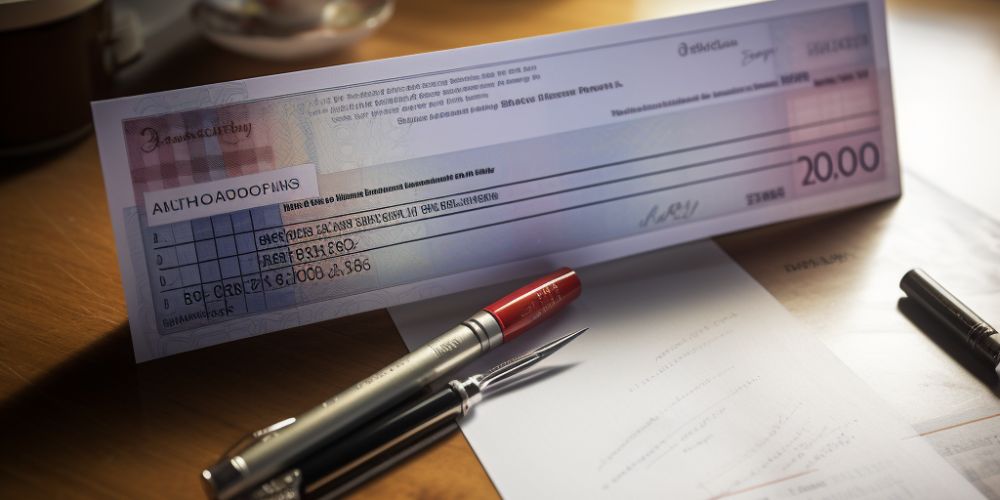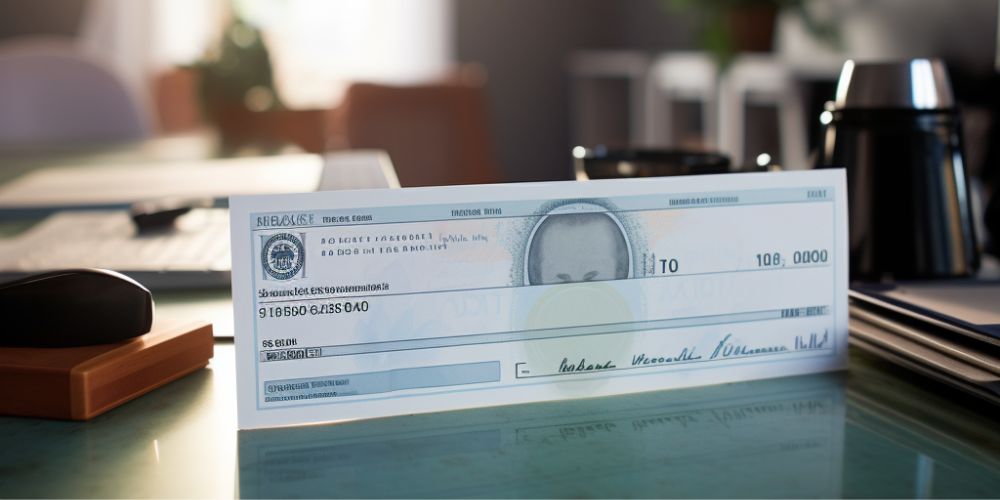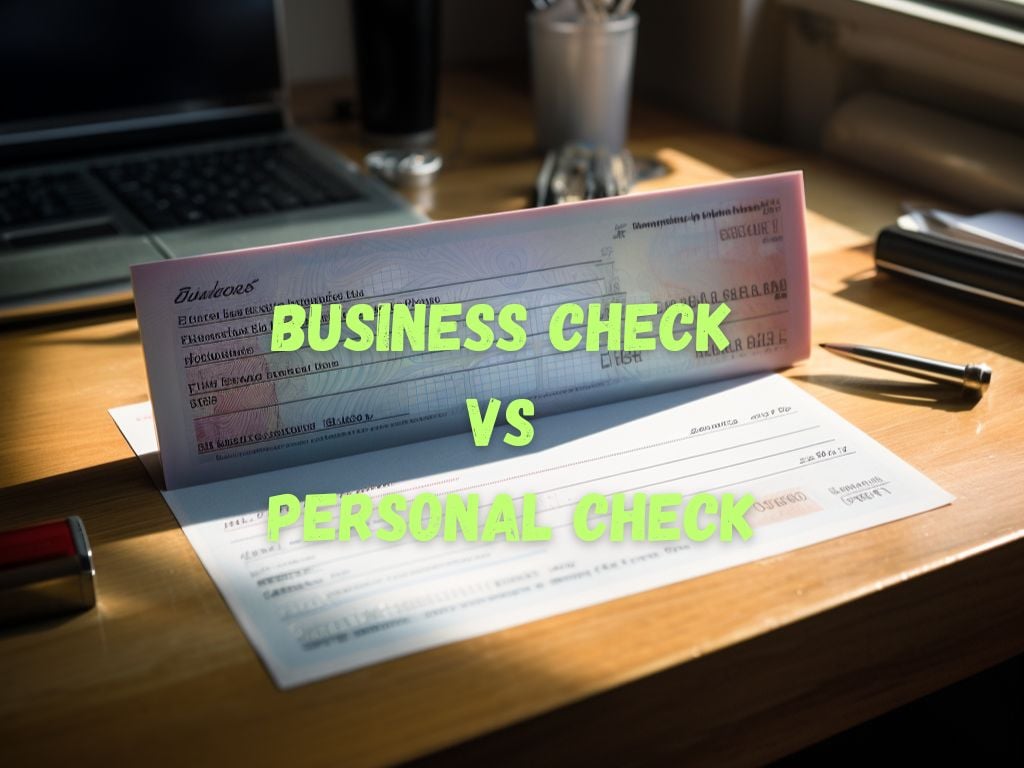In today’s digital age, where electronic transactions and mobile payments dominate the financial landscape, the use of checks may seem outdated.
However, checks still play a significant role in certain aspects of our financial lives. When it comes to checks, understanding the differences between business checks and personal checks becomes crucial.
Business checks are specifically designed for business transactions, customized with business information and often include additional security features. Personal checks are primarily used for personal transactions, lacking extensive customization and advanced security features.
In this article, we will compare the key characteristics, usage, legal obligations, and safety features associated with business check vs personal check.

Key Characteristics of Business Checks
Business checks are specifically designed for conducting business transactions. They are commonly used for payments between businesses or organizations, ensuring accountability and facilitating efficient record-keeping for business expenses.
Unlike personal checks, business checks require the inclusion of specific information and features that reflect the identity and purpose of the business.
Business checks are custom-designed with the business name, address, and logo. This customization not only provides a professional touch but also helps in establishing brand identity.
Additionally, business checks often incorporate advanced security features such as watermarks, special inks, or holograms, offering enhanced protection against fraud.
Another key feature of business checks is the inclusion of check stubs, which provide a convenient way to keep track of transactions, invoice numbers, and other important details.
Moreover, the usage of business checks is subject to certain legal obligations. Businesses must adhere to specific regulations and laws governing the use of checks.
This includes following proper accounting practices, maintaining accurate records of transactions, and being compliant with auditing procedures.
Such meticulous record-keeping is essential for taxation, accounting, and compliance purposes, providing a reliable audit trail.
Key Characteristics of Personal Checks
In contrast to business checks, personal checks are primarily used for personal financial matters.
They are suitable for transactions or payments involving individuals and are commonly used for personal expenses, obligations, or payments to friends and family.
Unlike business checks, personal checks tend to have a simpler, more standard appearance, lacking the customization and additional security features typically found in business checks.
A personal check usually includes personal contact information, such as the name and address of the account holder. Personal checks do not need to adhere to the same level of security features as business checks, making them more vulnerable to fraud and tampering.
While this does not deter their usage in personal transactions, it is essential to exercise caution when using personal checks, especially when dealing with unknown or untrusted entities.
From a legal perspective, personal checks are subject to general banking regulations. While accounting practices need not be as rigorous as with business checks, it is still advisable to maintain proper record-keeping habits.
Personal checks offer simplicity in terms of taxation and compliance, as they do not entail complex business expenses.
However, it is essential to record transactions accurately for personal financial management and budgeting purposes.
Business Check vs Personal Check: Differences in Acceptance and Safety
When it comes to acceptance by recipients, businesses generally prefer business checks for business-to-business (B2B) transactions.
Given the structured nature of business transactions, using business checks ensures a clear audit trail, facilitates accounting procedures, and aligns with standard business practices.
On the other hand, personal checks may be more suitable for individual transactions, such as paying rent to a landlord or reimbursing a friend for dinner.
However, it’s important to note that some organizations, particularly larger corporations or government agencies, may not accept personal checks due to the potential risks associated with them.
Personal checks carry a higher risk of insufficient funds, leading to bounced checks and potential losses for the recipient.
Therefore, it is always advisable to consider the preferences and policies of the recipient before proceeding with a personal check.
In terms of security and safety features, business checks are designed to offer enhanced protection against fraud and unauthorized alterations.
The inclusion of watermarks, special inks, or holograms makes it harder to counterfeit or tamper with business checks.
These security measures act as deterrents for fraudsters and provide businesses with peace of mind when conducting financial transactions.
Personal checks, on the other hand, lack these additional security features, making them more susceptible to forgery and tampering.
To mitigate these risks, individuals using personal checks should exercise caution and take certain precautions.
Some pro tips for using personal checks include writing clearly and legibly, using gel pens or other inks that are difficult to alter, and storing unused checks securely to prevent unauthorized access.

Common Mistakes and Tips for Using Business and Personal Checks
While both business and personal checks serve important financial purposes, there are certain mistakes that should be avoided when using them.
Mistakes to Avoid with Business Checks
Neglecting to reconcile and maintain accurate records: Proper record-keeping is crucial for businesses using checks.
It is essential to reconcile bank statements regularly, update transaction records promptly, and maintain a comprehensive and accurate paper trail of all financial transactions.
Failing to update contact information on checks: Businesses can change addresses or contact information over time.
To avoid check-related issues, it is important to update contact information, including name, address, and phone number, on business checks whenever necessary.
Not following proper check signing procedures: Business checks require authorized signatures to ensure validity.
Failure to follow proper check signing procedures can lead to rejected checks and potential financial complications. Businesses should establish clear signing protocols and ensure they are consistently followed.
Mistakes to Avoid with Personal Checks
Inadequate fund balance when writing a personal check: One of the most common mistakes with personal checks is writing a check without ensuring sufficient funds in the account.
This can lead to bounced checks, overdraft fees, and damaged relationships with the payee. To avoid this, it is important to maintain a proper balance and monitor account activity regularly.
Ignoring proper check register maintenance: Keeping track of personal check transactions in a check register is crucial for accurate record-keeping and financial management.
Ignoring this practice can lead to overdrawing accounts, missing important payments, or experiencing challenges in balancing finances.
Overspending or not budgeting appropriately: Personal checks should be used with careful consideration of available funds and budgetary constraints.
Failure to properly budget and overspending can create financial stress, increase the risk of insufficient funds, and may lead to unnecessary fees and penalties.

Frequently Asked Questions (FAQs)
Can I use a personal check for business transactions?
While it’s not recommended, personal checks can be used for business transactions.
However, it is important to consider the potential risks associated with personal checks, such as insufficient funds and limited acceptance by certain organizations.
What security measures should I consider when using personal checks?
To enhance the security of personal checks, consider writing clearly and legibly, using pens with gel ink or other inks that are resistant to alteration, and storing unused checks in a secure location.
Are there any tax implications when using business checks?
Business checks provide a clear audit trail and facilitate proper record-keeping, which can simplify tax preparation and compliance. It is advisable to consult a tax professional for specific guidance.
How should I record business check expenses for accounting purposes?
Business check expenses should be recorded accurately in the appropriate accounting software or ledger. Maintaining a thorough record of expenses helps with financial management, budgeting, and tax-related documentation.
Conclusion
Understanding the differences between business checks and personal checks is essential for effective financial management.
Business checks are tailored to meet the needs of businesses, ensuring accountability, and facilitating proper record-keeping.
Conversely, personal checks are primarily used for individual transactions, offering simplicity and convenience.
While both types serve important purposes, it is vital to use them responsibly, adhere to legal obligations, and take necessary precautions to minimize risks associated with personal checks.
By understanding these distinctions and following best practices, individuals and businesses can enjoy the benefits of checks while safeguarding their financial interests.


 Tags:
Tags:










